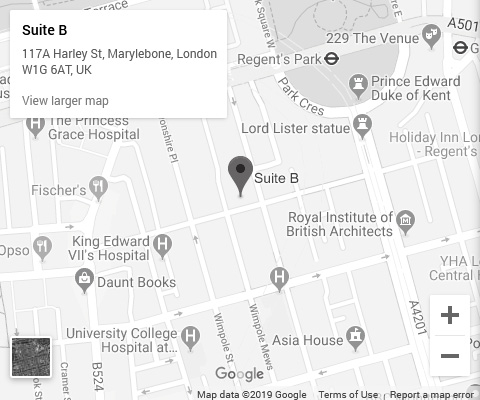
Pregnancy is a life-changing journey filled with excitement, anticipation, and a fair share of challenges. For expectant mothers in London and across the UK, taking care of yourself during this time isn’t just about ensuring a healthy baby—it’s also about nurturing your own well-being. The offers world-class guidance and support to help you navigate pregnancy, but understanding what steps to take can feel overwhelming. In this guide, we’ll break down everything from nutrition and exercise to mental health and financial support, so you can feel confident and prepared every step of the way.
Understanding Pregnancy Care in the UK
The UK offers two primary options for maternity care: and private services. While the provides comprehensive care free at the point of delivery, private care may appeal to those seeking additional flexibility or personalised attention. Regardless of the route you choose, early antenatal booking is crucial. By registering with a midwife by 10 weeks, you gain access to essential screenings, scans, and tailored advice.
The UK pregnancy care pathway typically includes regular check-ups, ultrasounds, and discussions about birth plans. This structured approach ensures that both mother and baby are monitored closely, allowing for timely interventions if needed. Understanding these processes helps you make informed decisions throughout your pregnancy.
Nutrition and Diet During Pregnancy
Eating well during pregnancy is one of the most impactful ways to support your growing baby. However, certain foods should be avoided due to potential risks. Soft cheeses like brie and camembert, undercooked meats, raw eggs, and high-mercury fish top the list of no-gos. Instead, focus on a balanced diet rich in fruits, vegetables, lean proteins, and whole grains.
The recommends eating iron-rich foods such as spinach and red meat while avoiding excessive caffeine (no more than 200mg per day). Staying hydrated is equally vital—aim for at least eight glasses of water daily. Remember, what you eat directly affects your energy levels and overall health, so prioritise nutrient-dense meals.
Essential Prenatal Supplements
Even with a stellar diet, prenatal supplements play a key role in filling nutritional gaps. The advises all pregnant women to take folic acid (400 micrograms daily) until at least week 12 to reduce the risk of neural tube defects. Vitamin D is another must-have, supporting bone health for both mum and baby. If you’re feeling unusually tired or have low iron levels, your doctor might recommend an iron supplement too.
Think of these vitamins as an insurance policy—they complement your diet rather than replace it. Always consult your GP or midwife before starting any new supplement to ensure it’s safe and appropriate for your needs.
Regular Antenatal Check-ups
Antenatal appointments are a cornerstone of pregnancy care in the UK. Typically, you’ll have around 10 check-ups if it’s a straightforward pregnancy, though this number may increase if complications arise. These visits often include weight checks, blood pressure monitoring, and urine tests.
Ultrasound scans are another highlight, with the dating scan at 8-14 weeks and the anomaly scan at 18-21 weeks being standard. These scans not only track your baby’s growth but also provide peace of mind. Don’t hesitate to ask questions during these appointments your healthcare team is there to support you.
Want personalised pregnancy guidance?
Schedule a consultation with our specialists and enjoy peace of mind throughout your journey.
Safe Exercise and Physical Wellbeing
Staying active during pregnancy comes with numerous benefits, including improved mood, reduced back pain, and better sleep. Low-impact activities like walking, swimming, and prenatal yoga are excellent choices. Many London parks offer serene spaces perfect for a refreshing stroll, while local studios may host pregnancy-specific classes.
However, listen to your body. If you experience dizziness, chest pain, or contractions, stop exercising immediately and contact your midwife. Aim for at least 150 minutes of moderate activity per week, but tailor it to your fitness level and comfort.
Managing Common Pregnancy Symptoms
Morning sickness, fatigue, and heartburn are common companions during pregnancy. To combat nausea, try sipping ginger tea or nibbling on plain crackers throughout the day. Small, frequent meals can also help keep your stomach settled. For heartburn, avoid spicy or fatty foods and consider sleeping propped up on pillows.
Fatigue is par for the course, especially in the first and third trimesters. Prioritise rest, delegate tasks when possible, and don’t shy away from naps. If symptoms become severe or unusual, reach out to your healthcare provider promptly.
Mental and Emotional Health
Pregnancy isn’t just a physical journey—it’s emotional too. Hormonal changes, coupled with the pressures of impending parenthood, can lead to stress or anxiety. Thankfully, the offers robust mental health support, including counselling and specialist perinatal services. Charities like Tommy’s and Mind also provide valuable resources.
Building a strong support network is equally important. Share your feelings with loved ones, join local parenting groups, or connect online with other mums-to-be. Reducing stress through mindfulness practices, journaling, or simply taking time for yourself can work wonders.
Financial Support and Maternity Benefits
Navigating finances during pregnancy can feel daunting, but the UK government offers several forms of assistance. The Sure Start Maternity Grant provides a tax-free payment of £500 to help with initial costs, though eligibility criteria apply. Additionally, statutory maternity pay and leave ensure working mothers can take time off without undue financial strain.
To access these benefits, start by checking your eligibility and gathering necessary documents. Your employer or local Jobcentre Plus office can guide you through the application process. Knowing your rights empowers you to plan confidently for the future.
Preparing for Labour and Birth
As your due date approaches, preparing for labour becomes a priority. Pack your hospital bag well in advance, including essentials like comfortable clothing, toiletries, and items for your partner. Creating a birth plan allows you to outline preferences regarding pain relief, birthing positions, and post-delivery care.
Familiarise yourself with labour options, whether that’s delivering at home, in a midwifery-led unit, or in a hospital setting. Each option has its pros and cons, so discuss them thoroughly with your midwife. Understanding what to expect in UK maternity wards—such as room setups and available facilities—can ease anxieties on the big day.
Sleep and Rest Tips
Good sleep is elusive for many pregnant women, particularly in the later stages. Combat discomfort by experimenting with different sleeping positions; lying on your left side is generally recommended. Invest in a supportive pregnancy pillow to alleviate back and hip pain.
Establishing a calming bedtime routine can signal to your body that it’s time to wind down. Dim the lights, read a book, or practise gentle stretches. Prioritising rest isn’t selfish—it’s essential for your health and your baby’s development.
Conclusion
Navigating pregnancy requires knowledge, preparation, and self-care. From maintaining a nutritious diet to attending regular check-ups and managing stress, each step contributes to a healthier pregnancy. Remember, the is an invaluable resource, offering evidence-based guidance and unwavering support.
If you haven’t already, book your antenatal check-up or speak with a midwife for personalised pregnancy care. You’ve got this, Mama—and the entire UK healthcare system has your back!






-in-the-UK.jpg)

